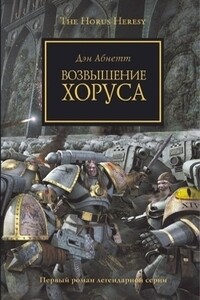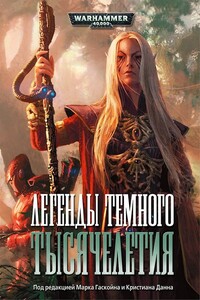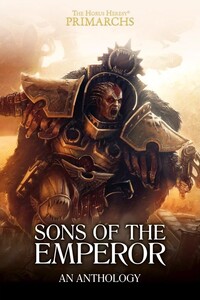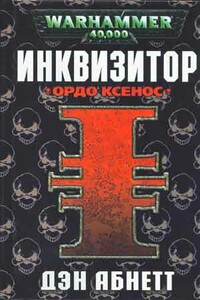Aemos visited me every day, and brought more and more data-slates and old books to my private room in the Hospice. He had established a working relationship with Voke's savants (Klysis was but one of seventeen employed by Commodus Voke), and was sifting data as it was passed to him. We tried to source information concerning the Glaws' confederates, but there was damnably little, even with Voke's platoon of savants hard at work. Locke was a shadowy, almost mythical figure, his name and reputation well known throughout the Helican sub-sector, but nothing could be found about his origin, career, associates or even the name of his vessel. Dazzo also drew a blank.
The Ecdesiarchy had no record of a churchman of that name. But I remembered what Kowitz had told me during the banquet, that Dazzo had links to a missionary order sponsored by the Glaws on the edgeworld Damask. Damask was a real place, right enough, a harsh frontier planet at the very limit of the Helican sub-sector territory, one of a hundred worthless, seldom-visited places. Astrogeographically it lay just a few months passage spinward of the uncharted regions of the mysterious saruthi.
Lowink accompanied Aemos on one of his visits as soon as I was strong enough, and extracted from my mind a likeness of the pipe-smoking man, which he realised psychometrically on an unexposed pict-plate. The image, a little blurred, was good enough, and it was copied and circulated through all branches of the investigating authorities. But no one could identify him.
Lowink recovered an image of the Pontius too, by the same means. This baffled all who viewed it, except Aemos who immediately confirmed that the strange artefact was precisely the correct size and dimensions to fit into the cavity in Eyclone's casket, the one recovered from Processional
Two-Twelve. As we had conjectured, this was what Eyclone had been awaiting, what the mass-murder in the Hubris ice tomb had been for.
'Urisel Glaw referred to Pontius as if he was still alive/ I said to Aemos. 'Certainly something with great psychic force felled me in the chamber where the Pontius was secured. Could he be alive, in some sense, some part of him, perhaps some psychic essence, captured in that device?'
Aemos nodded. 'It is not beyond the highest Imperial technologies to maintain a sentience after great physical injury or even death. But for such technologies to be within the grasp of even a mighty family like the Claws…'
'You told me it resembled something of the mysteries of the Adeptes Mechanicus.'
'I did/ he pondered. 'It is most perturbatory. Could the foul crime of Hubris have been some effort to siphon vulnerable life energies into this artefact? To give the Pontius a massive jolt of power?'
On the third morning, Fischig visited. His own injuries were healed, and he seemed annoyed to have missed the episode at Glaw House. He brought with him a priceless antique slate, a collection of inspirational verse composed by Juris Sathascine, curate-confessor of one of Macharius's generals. It was a gift from Maxilla, from his private collection.
Delayed by the excitement of the Glaw incident, the founding resumed. The new Imperial guardsmen were shipped to troop transports in the orbiting fleet and the final ceremonies were carried out. The Lord Militant Commander was now anxious to begin his expedition into the troubled Ophidian sub-sector, and felt enough time and manpower had been spent on this little local matter.
On the tenth day, it didn't look so much like a local matter any more. Via astropathic link, news came of incidents throughout the sub-sector: a rash of bombings on Thracian Primaris; the seizure and destruction of a passenger vessel bound for Hesperus; a hive decimated by a viral toxin on Messina.
That evening, a brief, bright star suddenly ignited in the sky over Dor-say. The Ultima Victrix, a four hundred thousand tonne ironclad, had exploded at anchor. The blast had crippled four ships nearby.
An hour later, it became clear the incident had grown signally worse. Exactly how was not clear, even to battlefleet intelligence, but the explosion had been identified in error as a sign of an enemy attack by several components of the fleet. A frigate wing commanded by a captain called Estrum had moved to engage, and several destroyers from the advance phalanx had mistaken them for fleet intruders and opened fire. For twenty-seven hideous minutes, Battlefleet Scaras waged war against itself through the anchor lines of navy vessels and troop ships. Six ships were lost. Eventually, apparently heedless of countermands, Estrum broke off and, with a mobile group of fifteen vessels, went to warp to outrun 'the enemy'. Admiral Spatian gave chase with a flotilla of eight heavy cruisers.







